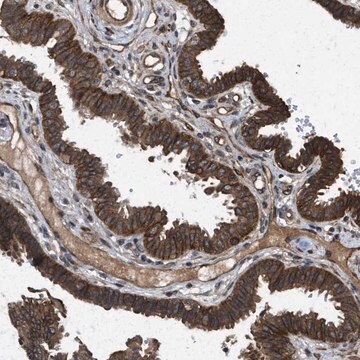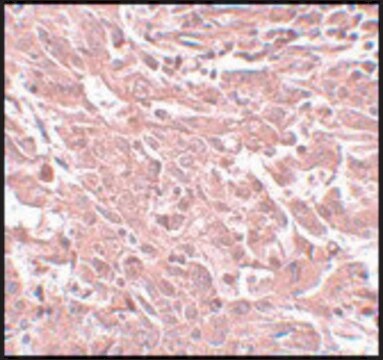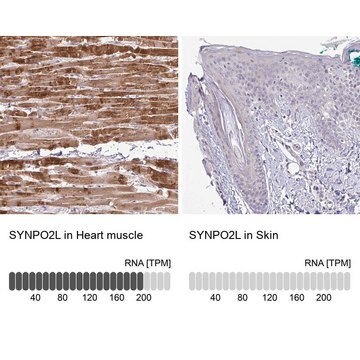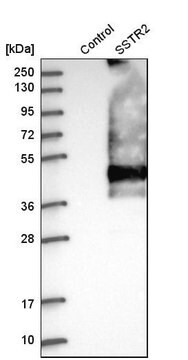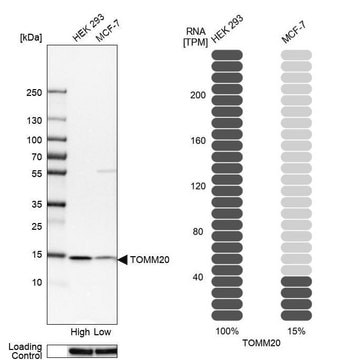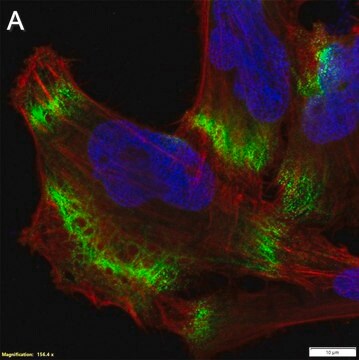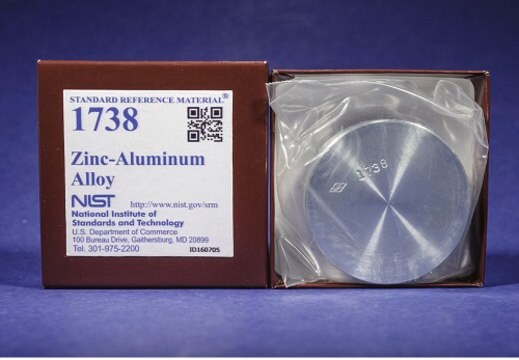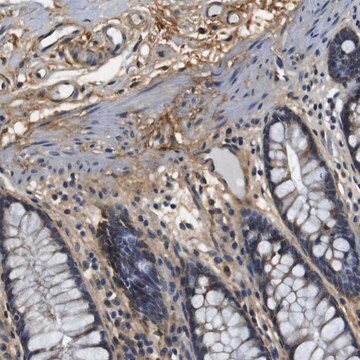SAB3500046
Anti-RSPO1 antibody produced in rabbit
affinity isolated antibody, buffered aqueous solution
Synonym(s):
Anti-CRISTIN3, Anti-R-spondin1, Anti-RSPO
About This Item
IF
IHC
WB
immunohistochemistry: suitable
indirect ELISA: suitable
western blot: suitable
Recommended Products
biological source
rabbit
Quality Level
conjugate
unconjugated
antibody form
affinity isolated antibody
antibody product type
primary antibodies
clone
polyclonal
form
buffered aqueous solution
species reactivity
rat, human, mouse
technique(s)
immunofluorescence: suitable
immunohistochemistry: suitable
indirect ELISA: suitable
western blot: suitable
NCBI accession no.
UniProt accession no.
shipped in
dry ice
storage temp.
−20°C
target post-translational modification
unmodified
Gene Information
human ... RSPO1(284654)
General description
Immunogen
Application
Immunohistochemistry-frozen tissue (1 paper)
Biochem/physiol Actions
Features and Benefits
Linkage
Physical form
Disclaimer
Not finding the right product?
Try our Product Selector Tool.
Storage Class Code
10 - Combustible liquids
WGK
WGK 2
Flash Point(F)
Not applicable
Flash Point(C)
Not applicable
Choose from one of the most recent versions:
Certificates of Analysis (COA)
Don't see the Right Version?
If you require a particular version, you can look up a specific certificate by the Lot or Batch number.
Already Own This Product?
Find documentation for the products that you have recently purchased in the Document Library.
Our team of scientists has experience in all areas of research including Life Science, Material Science, Chemical Synthesis, Chromatography, Analytical and many others.
Contact Technical Service